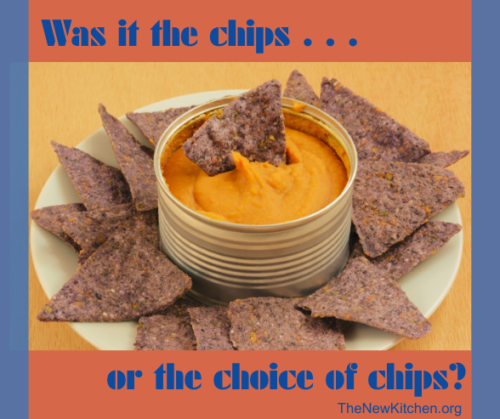In a recent newsletter, holistic certified nutritionist Elyse Wagner made a vulnerable share. She described how she had made a super yummy bean dip for the Super Bowl and then proceeded, chip by chip, to eat “HALF yes, HALF of the bean dip before HALF TIME.”
As an experienced health coach, Elyse knew she needed to stop right then and explore what had happened. The problem, she realized, is that she had disconnected from her body’s fullness signals. Of course she also shared how to avoid succumbing to uncomfortable overeating episodes and you might want to read more on that here.
But I have to wonder: Must her disconnect shoulder full responsibility for the bean dip episode. After all, chips are manufactured to be not only addictive but to also hijack the body’s fullness signals. How can mere mortals be expected to do anything but overeat them?
Hence my question: Is it the chips or the choice of chips? In other words, chips (and most other ultra-processed foods) pose a disconnect problem that’s practically unavoidable. Would it make a lot more sense to address the upstream problem, i.e., the choice to have chips at all? That choice is something we can control a lot more easily.
Granted, bean dip without chips on the side is an almost preposterous thought, especially on Super Bowl Sunday. But just for fun, consider how much bean dip a person would eat if there were no chips and you just put a little in a bowl and ate it like soup? What if carrot sticks were the dippers? What if it was served over baked potato wedges–or any other food that wasn’t designed so “you can’t eat just one?”
Surely it takes courage to prevent overeating like this! Read more about how it takes courage to eat well.
